Just before starting this article, I received a new issue of “Journal of Religious Studies”, dedicated entirely to food. Considering it a sign, I decided to start with a quote from Editorial Objectives of this issue:
“The business of eating is, along with clothing and shelter, one of the bare necessities of life. And yet the activity of directly introducing foreign objects into your body makes this quite different from the other two matters”.
Indeed, if we reflect on the process of eating, we must notice that it is rather complicated and sacred process of building your own body with something that (usually) used to be alive. And doesn’t that mean that it is better to know where your food, this important part of your everyday’s life, comes from?
Tohoku Local Food Cafe is an event where you get to know more about the things you eat (or at least have a possibility to eat) in Sendai. Everytime the organizers invite some local food producer and offer us a chance to ask different questions, to listen to an explanation of what they are making and why they are making it, and, eventually, to enjoy some delicious food.
Usually we concentrate on a product, but at Tohoku Local Food Cafe vol. 14 we had a presentation about what it means to be a farmer from wonderful Miho Aihara from トータスファーム (Tortoise farm). Actually, there are no tortoises on this farm, they are growing rice and vegetables. Simply this farmers’ family seems to have a close connection to tortoises, since many of their ancestors and Aihara’s father have a “tortoise” kanji in their names.
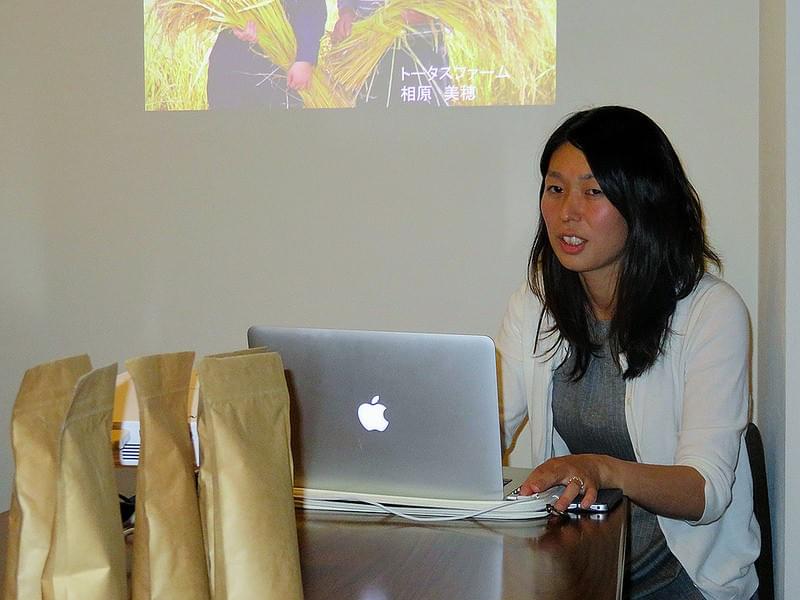
Aihara grew up on a farm and at first she didn’t like farming much. In search for something she might like about food producing, she entered Hokkaido university and through her studies and inspiring Hokkaido food culture, she discovered that she is really good in finding tasty things in local supermarkets. So, her first job was putting a price on products - and she liked it very much.
Then 2011 Tohoku earthquake and tsunami made her re-think her mission. Many farms were destroyed, and in Sendai, local producers got replaced by food producers from other parts of Japan. Such questions as how to combine producing and selling more effectively, or what is the best way to help local producers to get on the local market lead to her quitting her job at the company and going back to her family’s farm to get closer to farmer’s world.
A lot of great products are being grown on Tortoise Farm - rice, tomatoes, cucumbers, eggplants, but the product that Aihara is especially proud of is magarinegi - a type of leek that is more sweet than the usual one and has a curvy form. Magarinegi is 100 % Sendaian - the technique of getting the leek out once, turning it to the other side and putting back to the ground was invented here, in Iwakiri.
Aihara treated us with incredible meal - fresh tomatoes and cucumbers were perfect for the last days of summer, when we still want to have some taste of it (and how good this real summer-like taste was!).
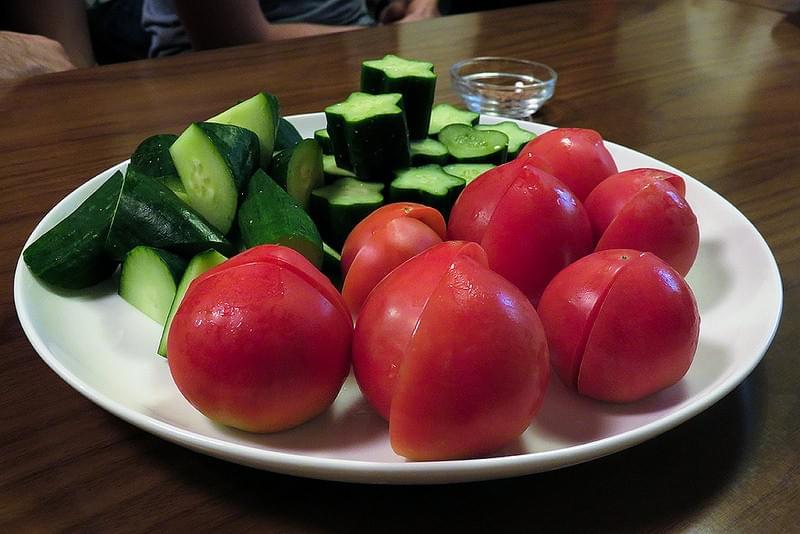
Grilled bell pepper, eggplant, bitter gourd that followed were amazing, too.
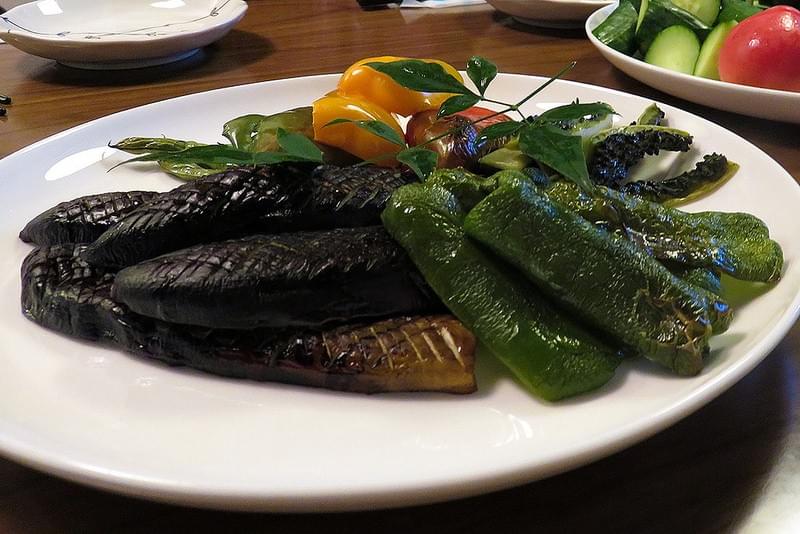
But for me, the most impressing thing was simple onigiri served at the end of the course. Flavoured only with a bit of sault and wrapped in nori, it tasted so good that I couldn’t believe that it is just rice. The same rice that we are so used to, while living in Japan, can be so delicious!
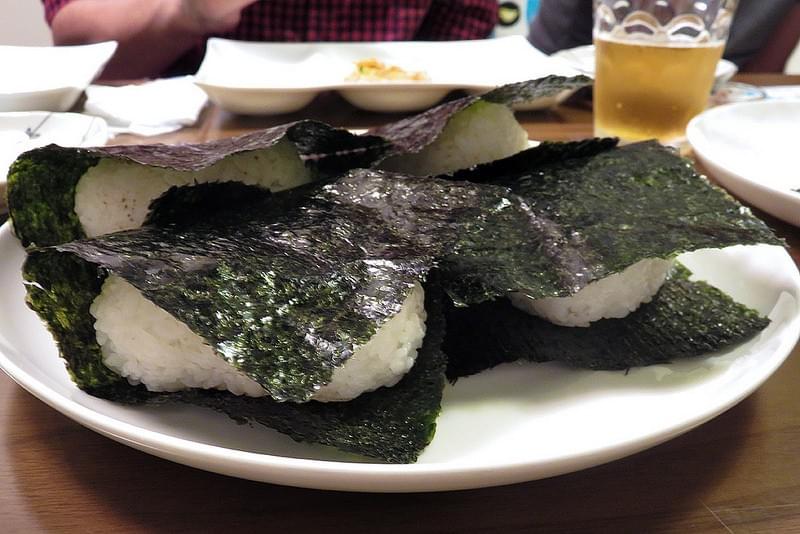
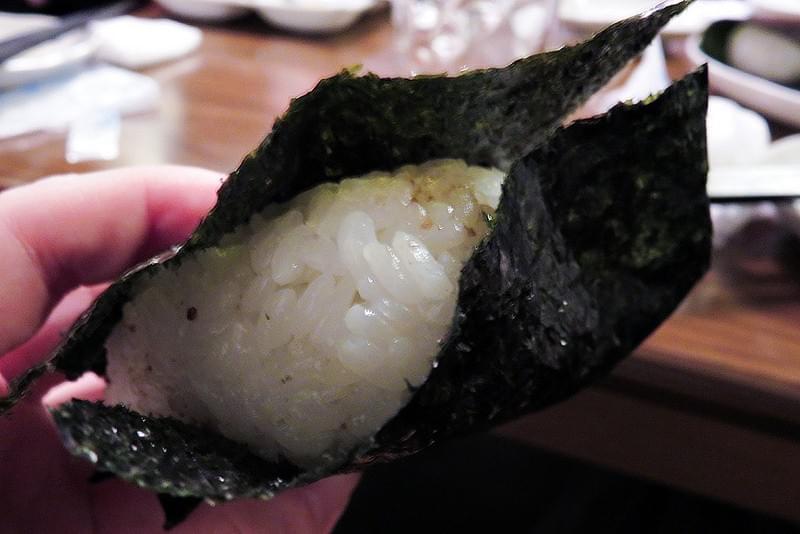
Aihara thinks that traditions can and must be adapted to the needs of modern people. She wants to provide an environment, where people get involved in a direct contact with their food. I think, that’s exactly what we need nowadays.
If you want to hear some more wonderful stories from local food producers and have a delicious meal in a nice company, visit the next edition of Tohoku Local Food Cafe! Don’t worry if you don’t speak Japanese - amazing Thilo is translating every word.
For future editions, please have a look at and join Tohoku Local Food Society FB Page!

